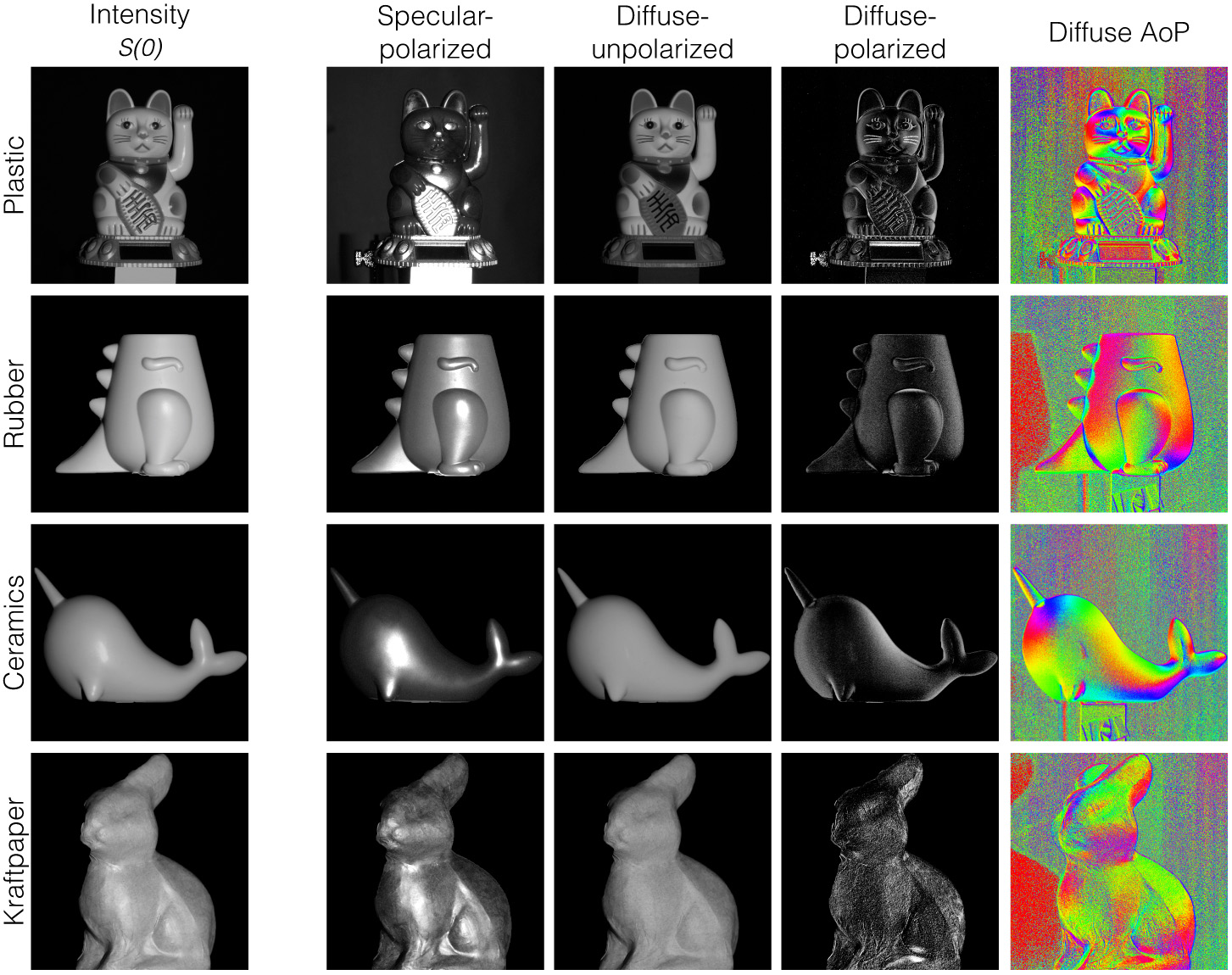Polarimetric Image Decomposition

In this paper, we present the polarimetric Helmholtz stereopsis (polar-HS), which extends the classical Helmholtz stereopsis by considering the polarization state of light in the reciprocal paths. With the additional phase information from polarization, polar-HS requires only one reciprocal image pair. We formulate new reciprocity and diffuse/specular polarimetric constraints to recover surface depths and normals using an optimization framework. Using a hardware prototype, we show that our approach produces high-quality 3D reconstruction for different types of surfaces, ranging from diffuse to highly specular.

@ARTICLE {ding2024phs_pami,
author = {Ding, Yuqi and Ji, Yu and Cheng, Zhang and Zhou, Mingyuan and Kang, Sing Bing and Ye, Jinwei},
title = {Polarimetric Helmholtz Stereopsis},
journal = {IEEE Transactions on Pattern Analysis & Machine Intelligence},
month = {January},
year = {2024},
}@InProceedings{ding2021phs_iccv,
author = {Ding, Yuqi and Ji, Yu and Zhou, Mingyuan and Kang, Sing Bing and Ye, Jinwei},
title = {Polarimetric Helmholtz Stereopsis},
booktitle = {Proceedings of the IEEE/CVF International Conference on Computer Vision (ICCV)},
month = {October},
year = {2021},
}